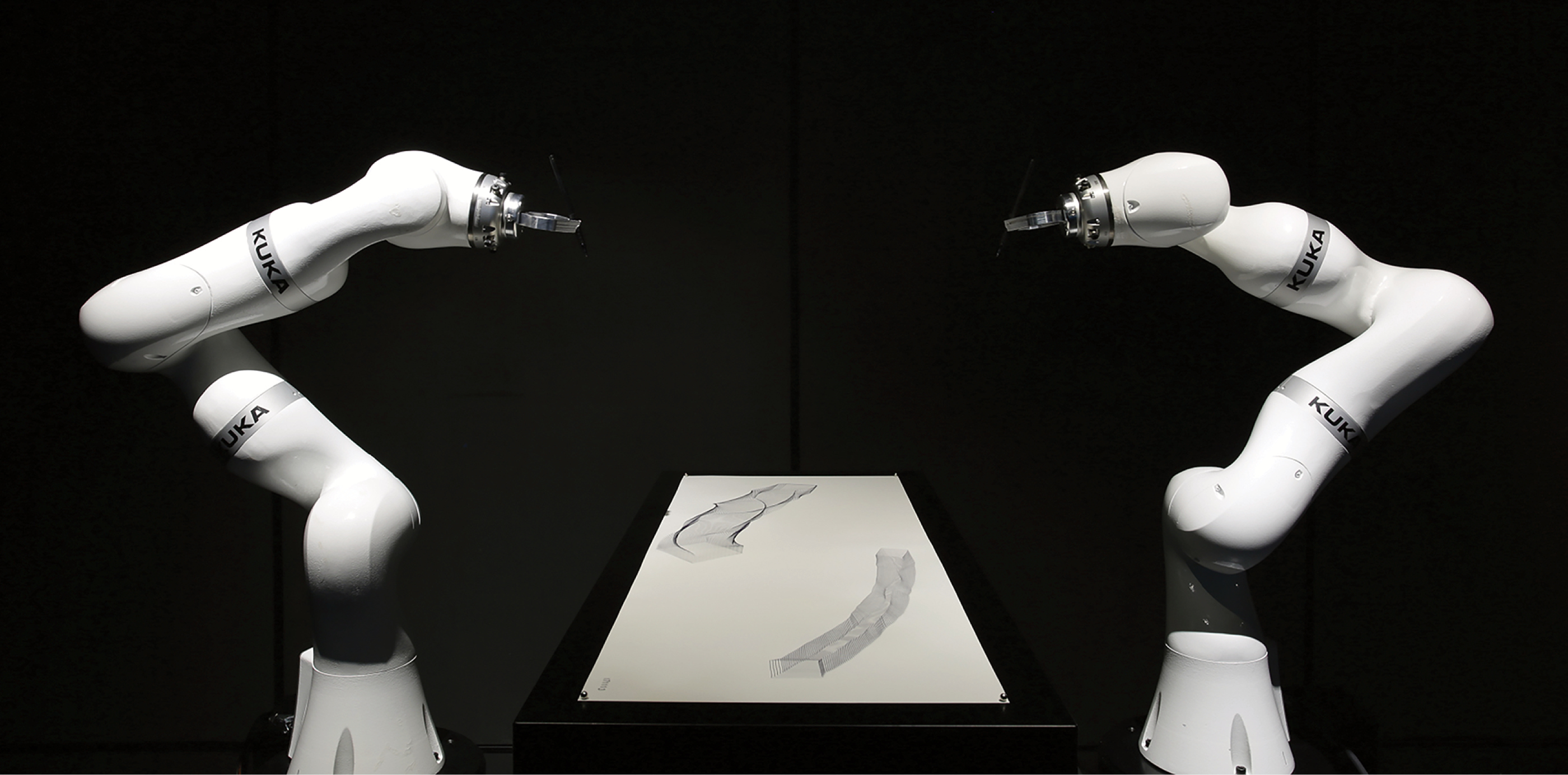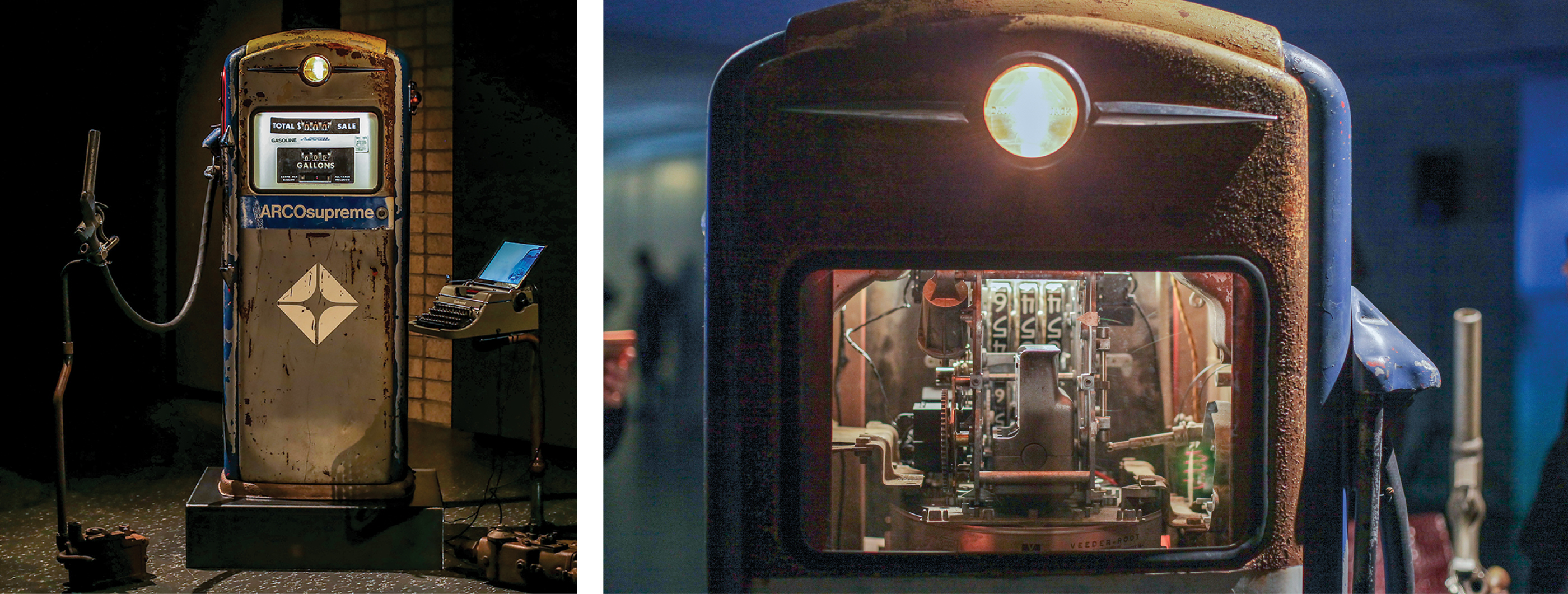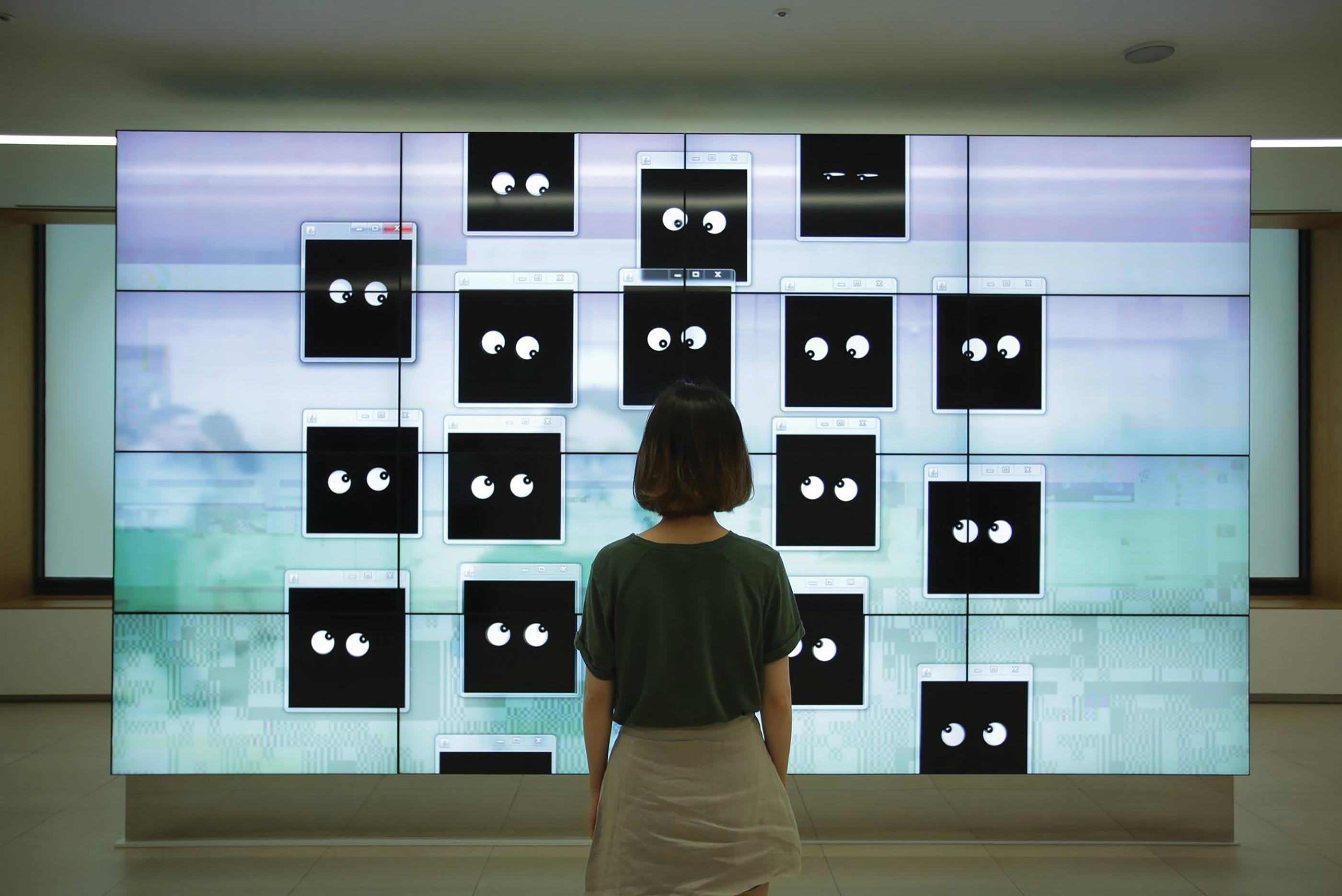That forward-looking vision is something she shares and works to promote through art and education. Art Center Nabi frequently hosts seminars, including a three-part online series in December 2020 with sessions on “Art, Technology and the Cosmos,” “The Poverty of Philosophy After A.I.” and “Humanizing the Machine/Mechanizing the Human.”
Roh has taught classes at Sogang University and Seoul National University, and she has hosted William & Mary Global Research Institute Summer Fellows at Art Center Nabi. One fellow was Amy Zhao ’19, who learned about the impact that blockchain technology could have in the art world. In 2021, Zhao won first place in the “Design & Creator” stream of WizForm’s Build Your Dream competition for a project idea called “The Art Block,” an application that links physical art to a digital token on the blockchain to connect artists and artwork and protect art ownership.
In 2017, Roh visited Williamsburg to give the prestigious George Tayloe Ross Address on International Peace, and she has agreed to serve starting in spring 2022 on W&M’s Reves International Advisory Board.
“I like to follow in the cultural area what my father envisioned politically, his big picture,” she says. “Korea is prospering culturally, so it may be a faster way to achieve what he had envisioned.”
Williamsburg and Beyond
Roh came to W&M as a student during a turbulent time in South Korea, where she had attended engineering school at Seoul National University for two years before arriving in Williamsburg in 1982.
In Seoul, “our university closed down for a very extended time,” she says. “We couldn’t study. There were riots and demonstrations every day. Instead of going to school, students were in the streets throwing stones and fire bottles at the police.”
Roh, whose father was a military leader at the time, did not join the pro-democracy protesters, but she sympathized with them.
“I was ostracized by other students because of my father,” she says. “When I moved to the States, it was more like an exile.”
She did not know much about William & Mary, but she had heard of the university’s strong academic reputation.
“Information about American colleges was almost nonexistent in Korea, so I guess it was providence,” she says.
Unlike students she knew from Korea who attended large universities in America, Roh was able to participate in local cultural experiences, such as going on a hayride and roasting marshmallows over a bonfire in the woods. On the other hand, she missed being part of a more cosmopolitan atmosphere.
“When you are young and very curious about the world, for me it was a little too quiet,” she says.
Roh made friends with other international students, whom she describes as “similar-minded misfits.”
She majored in economics, but her favorite class was English composition, which she says helped her organize her thoughts.
“I didn’t speak much English, but the teacher was so attentive and dedicated,” she says. “I got an A-plus at the end, not because I did better than the American students, but the professor saw how much progress I made, and she graded on that, so I am very grateful.”
After receiving her bachelor’s degree, Roh pursued graduate studies in economics at the University of Chicago and earned a master’s degree in education from Stanford University. Her three children attended large universities — Brown, Stanford and the University of Chicago — but Roh believes she received a better undergraduate education than they did, because of the high quality of teaching and individual attention she received at William & Mary.
Through involvement on the Reves board, Roh hopes to help foster a more cosmopolitan environment in which people and perspectives from a wide variety of cultural, geographic, ethnic and religious backgrounds are fully integrated into the life of the university and there is an expectation of mutual respect and understanding.
“What I want to tell the William & Mary community in one sentence,” she says, “is ‘go beyond global, be cosmopolitan.’”


